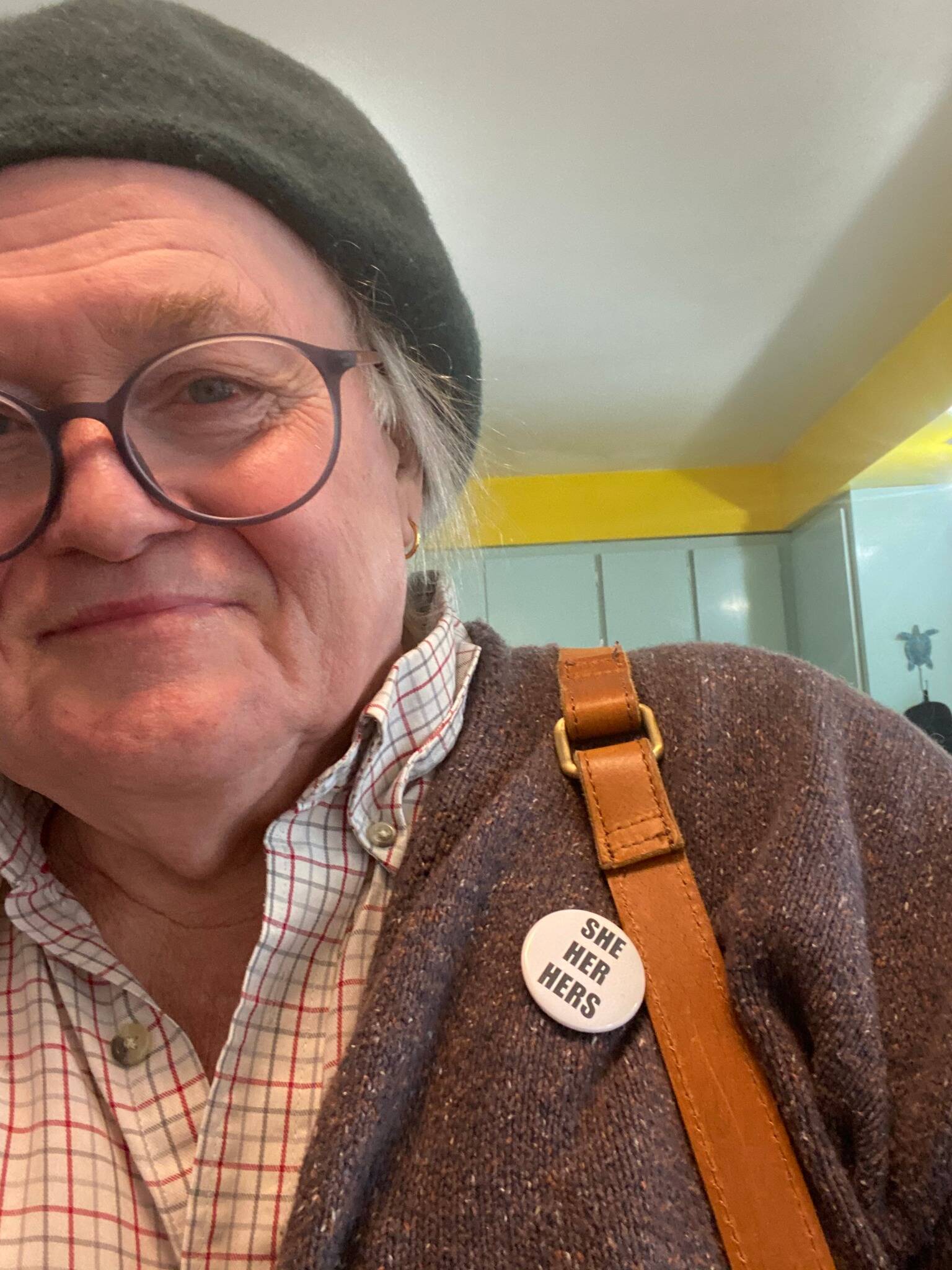By Jane Hale
“look in my goddamn face
and see
my damn name.”
—Ed Roberson, “Cape Journal: At Sand Pile”
Friday morning, May 13. I’m sitting here in one of my favorite places in Juneau, Studio 2B at KTOO, where I’m about to start the Friday edition of” Soundings,” one of KRNN’s weekday morning music shows.
I’ve nicknamed my edition of the show “Episodes in the History of Noise,” a more fitting appellation for a wild jumble of punk, rock, blues, jazz, country, Irish, Calypso, Klezmer, Zydeco, medieval motets, Elizabethan showtunes, Baroque sonatas, Lakota honoring songs, Christmas carols all year round, whatever. If it’s recorded and I like it, I’ll play it.
My radio nom de guerre is Johnny Negotiable, a name I garnered from a 1976 review of a record by Johnny Paycheck (born Donald Lytle) that dismissed Paycheck as “… just another country Johnny with a negotiable last name.”
Johnny Cash, Johnny Paycheck, Gary U.S. Bonds, Johnny Dollar and his half-brother Fifty Cent — let’s cut to the chase: Johnny Negotiable.
I like the rhythm of it, two dactyls. And the ambiguous hint of irony. It makes me sound like I might be open to suggestions.
In the evening, Michelle and I go to Shabbat service, where our congregation’s student rabbi, Max Antman, holds a ceremony to change my Hebrew name to Sarah.
Max’s last name is pronounced ANT-mǝn, but I can’t help calling him after the Marvel superhero. (After all, the word rabbi is Hebrew for “superhero.”)
(OK, not really, but it can be interpreted that way. In fact, if you look at the Talmud, the collection of rabbinical commentary on the Torah, the text is laid out like an array of speech balloons in an imageless graphic novel. Biblical explication is represented not as dogma but as a conversation across the ages. A conversation between superheroes.)
Tuesday, May 17. I have my court hearing to change my legal name. Michelle and I and an entourage of friends squeeze into the small Courtroom F, which apparently serves also for excess furniture storage.
Sitting down at her bench, the judge asks for Ms. Hale. I look to Michelle, but Michelle doesn’t answer. The judge asks again for Ms. Hale, and Michelle motions to me with her eyes to answer the judge. Then it hits me.
In his last poem, “Epilogue,” Robert Lowell writes:
“We are poor passing facts,
“warned by that to give
“each figure in the photograph
“his living name.”
I once objected that the redemption Lowell advocates here serves only for poets, not for us normal folks.
But we’re all poets. We’re all trying to find the right words for our experiences and for ourselves, signifiers that say something true about what they signify. Socrates thought that all words originated as onomatopoeia. “The sound,” says Alexander Pope, “must seem an echo of the sense.”
Living names. Names that live and breathe like we do, and that sometimes change like we do.
On one level, names are all about power. In the story of Genesis, God gives humans dominion over Earth’s other creatures, so Adam’s first job in the Garden of Eden is to name all the animals.
But who gets to say what your name is? Who has dominion over you?
Here in Lingít Aaní, we see greater steps being taken toward restoring Indigenous place names — part of a larger effort to revitalize Alaska Native language. It’s a small step toward healing some of the racist damage done by a colonial cultural hegemony, but it’s a start if we can know our home by names that come from the very character and spirit of the place and that were used untold thousands of years before colonization. These are living names, alive with and perpetuating the Native heritage.
A living name, a real name, one that reflects where you’re from, the currents that carry you, the choices you make. Your name is yours to choose. I’m choosing mine.
Finally, speaking of names, let me end today with an apology—for all the poets, punks, and philosophers whose words run through my columns like wild uncontrollable children through the food aisles at Fred’s.
I’m an unabashed name-dropper. My mind is a quilt of other people’s ideas, so I credit the writers whose works I ransack for meaning. In my world these are the celebrities and superstars. Chris Rock and Will Smith? I’d rather hear what Cornel West has to say about the dust-up between Edward Saïd and Martin Buber. Or read new poems by my friends Kersten Christianson or Ed Roberson or Emily Wall. Or put on some new tunes by Fantastic Negrito.
I spent my formative years, i.e., my thirties (I’m a late bloomer), studying English poetry, reading continental philosophy, and listening to punk music–at New York City clubs with names like Max’s Kansas City. Everything that runs through my head gets filtered through those voices. For better or worse, they are my internal road map. They help me locate myself.
And Jane Hale is hard to find.
Actually, I think we’re all hard to find. It helps to know each other by our real names.
• Jane Hale spent her first 69 years writing as Jim. She is a longtime Juneau resident. “Coming Out” is a biweekly column. It appears on the Empire’s Neighbors page.

